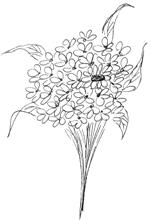 Today is the eve of the New Year, which means the time left to make one’s New Year resolutions is fast depleting. I’ve never been one to set New Year resolutions, believing in making adjustments as I course along, basically operating in the reactive mode.
Today is the eve of the New Year, which means the time left to make one’s New Year resolutions is fast depleting. I’ve never been one to set New Year resolutions, believing in making adjustments as I course along, basically operating in the reactive mode.The only goals I set are career-related, and that also because it is a job requirement, stating in no uncertain terms the achievements, quantifiable and measurable ones, by year end, so that my job performance can be judged, presumably objectively, as a yardstick for rewards. For example, learning to use new software, or applying software in a new project setting, or earning additional professional certifications.
A pre-requisite for making meaningful New Year resolutions is stock taking of past events leading to the identification of shortcomings to be addressed in the new year. One can also persist with what has worked in the past year, and continue with the same, but perhaps with gusto, conviction, or even bravado.
Since my career-related goals are a matter between me and my boss, here I would like to share my personal goals for the year 2007, having subjected them to the criteria cited above and in no particular order:
- In addition to continuing to be a non-smoker, I also resolve to abstain from the company of smokers, having read that inhaling secondary smoke can be as detrimental to one’s health as the smoker.
- I resolve to continue as a non-alcoholic consumer, but would also enjoy the company of social drinkers as I believe that taken in moderation, wine can be beneficial to health. At the same time, it could help promote collegiality by helping to “loosen the tongue” somewhat, so to speak. In this respect, my abstinence is entirely medically driven.
- I resolve to continue as a conscientious blogger who does not fabricate (maybe stretch the imagination a bit), who would give credit where it’s due, and who would observe all other canons of netiquette not covered in the first two (read here).
- I resolve to continue to contribute to the relief and wellbeing of the needy through donation the best way I can, having taking cognizance of the fact that not all charities are the same (read here).
- I resolve to continue to photo-shoot scenery and situation as and when they present themselves to add them to my collection and to share them through my blogs whenever feasible and where they enhance the theme under discussion, with proper attribution. (Roosting fowls alongside a river bank during a visit to the Berkeley Plantations, Virginia on 20 June 2005).
- I resolve to continue to be the husband worthy of my wife’s doting attention, the father worthy of my children’s respect and pride, both overtly and covertly, and a friend worthy of those who take the trouble to befriend me.
- I resolve to continue to learn the wise ways of the Buddha as my guiding light in life, to continue to participate in release life activities, and to continue to translate Buddhist verses/teaching in Chinese to English so that others could also benefit from the Buddha teaching in the pursuit of tranquility and serenity in life (Bird feeding during one of the Year 2006 release life activities at Clearwater Beach with the pier in the backgroud).
- I resolve to be more environment conscious in my orientation that includes sound use of natural resources within my disposal, and not to take the everyday amenities spawned by technological advances for granted (flamingoes seemingly on stilts taken inside the Busch Garden Theme Park on 28 Dec 2006).
- I resolve to continue to follow a healthy diet comprising a large portion of vegetables supplemented with the requisite mix of brown rice, whole grain bread, tofu, chicken, fish, and plenty of water. That means home-cooked meals prepared with extra-culinary care by my wife.
- I resolve to do more brisk walking during work, and more promenading along the Bayshore Boulevard after work with my wife.
- I resolve to continue to maintain an even keel for both work and life, which means dissipating work pressure during work hours and leading a stress-free life, at least for a much greater proportion of the time (I’m a realist too).
- And last but not the least, I resolve to both pray for and help in my own little way to bring about a peaceful world where religious strife will be replaced by inter-faith harmony, and where global threats will be addressed in concert.













































